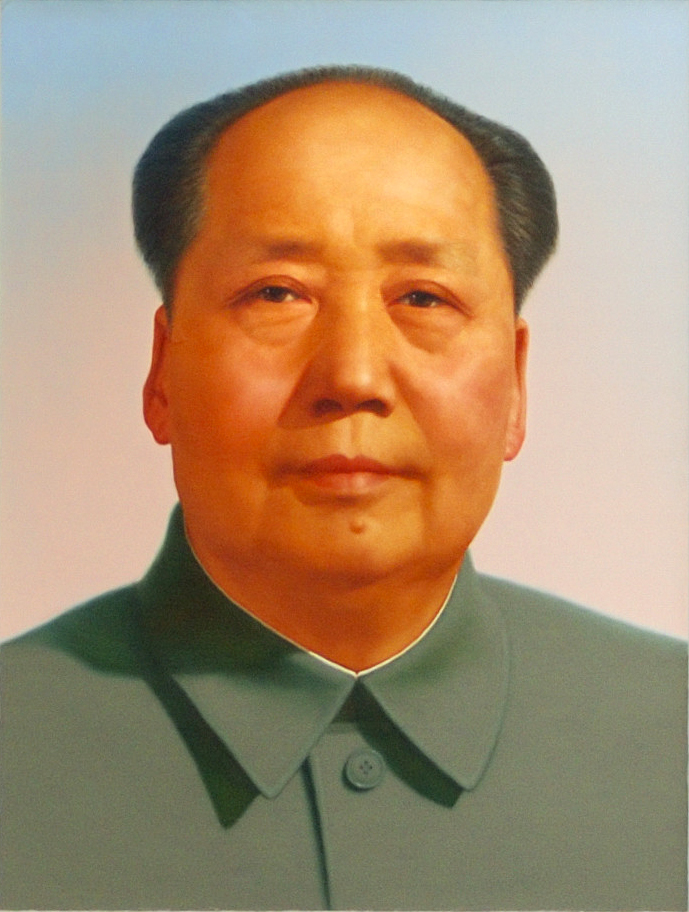More languages
More actions
m (Filled out infobox) |
(Added more detail to the early life of Mao Zedong) Tag: Visual edit |
||
| Line 23: | Line 23: | ||
==Early life== | ==Early life== | ||
Mao | Mao Zedong was born on December 26, 1893 in a peasant family in Shaoshan, Hunan. <ref>[https://baike.baidu.com/reference/113835/47b3UXeOlls2dqtF1RBQ9euk5nvQ6S5grjQRBfjOFkWIPa1ltVabtooqj1XMsHEO68MSM1QOJ1SrB8XHur3CBi5Ue5vS3PMNKQ December 26: Mao Zedong was born in Shaoshanchong, Xiangtan, Hunan] - Central People's Government of the People's Republic of China.</ref> After the outbreak of the Revolution of 1911, he served as a soldier in the Xinhai Rebellion for half a year. | ||
From 1914 to 1918, he studied in Hunan First Normal School . On the eve of graduation, he organized a revolutionary group Xinmin Society with Cai Hesen and others . | |||
Contacted and accepted Marxism before and after the May 4th Movement. In November 1920, he founded a communist organization in Hunan. | |||
In July 1921, he attended the First National Congress of the Communist Party of China<ref>Xinhua Net Shanghai Channel - [https://baike.baidu.com/reference/113835/9168QvPe969PIACxwnK_EkfmEeFT8--eIvXWdyIDXgdA7H2n3dPD8YUaOD1boJtJpgd-VUzw05EUTdSlAYQMQc7POvRnFIU1pCmD3_v3 Mao Zedong Xinhua Net] </ref> held in Shanghai , and later served as secretary of the Hunan District Committee of the Communist Party of China, leading the labor movements in Changsha, Anyuan and other places. In June 1923, he attended the Third National Congress of the Communist Party of China <ref>[https://baike.baidu.com/reference/113835/6d36CXK17zE3iY30jv_p4ayR5JtyKLsog-GKHp_jnR5i2niLfVyecHcuDAKlRVyG_HtFDBYvRHJ-d2uawhN1J_JzbN_hmkrDdIzQqEikrEpEgoT2og Database of previous National Congresses of the Communist Party of China - People's Daily Online] </ref>, was elected as a member of the Central Executive Committee, and participated in the leadership work of the Central Committee. | |||
After the cooperation between the KMT and the Communist Party in January 1924 , he was elected as an alternate executive member of the Central Committee at the first and second National Congresses of the Kuomintang. He served as the acting director of the Central Propaganda Department of the Kuomintang in Guangzhou, edited the "Political Weekly", and hosted the sixth peasant Sports Workshop . | |||
In November 1926, he served as Secretary of the Peasant Movement Committee of the Central Committee of the Communist Party of China. | |||
==Library works== | ==Library works== | ||
Revision as of 16:33, 29 March 2023
Chairman Mao Zedong 毛泽东 | |
|---|---|
 Portrait of comrade Mao | |
| Born | December 26, 1893 Shaoshan, Hunan, Qing dynasty |
| Died | September 9, 1976 (aged 82) Beijing, People's Republic of China |
| Cause of death | Heart attack associated with old age |
| Nationality | Chinese |
| Political orientation | Marxism-Leninism (developed what is now known as Mao Zedong Thought) Anti-imperialism |
| Political party | Communist Party of China |
 | This article is a stub. You can help improve this article by editing it. |
Mao Zedong (December 26th, 1893 — September 9th, 1976) was a Chinese Marxist-Leninist revolutionary who lead the Chinese people to their proletarian revolution and served as the supreme leader of the People's Republic of China from 1949 to 1976. Under Mao's rule, China's life expectancy increased from 35 to 65 years and industrial production increased by an average of 11% annually.[1] Per capita food production increased by 60% and total food production increased by over 169%.[2]
Comrade Mao's contributions to the development of Marxism-Leninism, military theory, and the theory of communist party organization are known in China as Mao Zedong Thought. Mao Zedong was also a poet and calligrapher.
Early life
Mao Zedong was born on December 26, 1893 in a peasant family in Shaoshan, Hunan. [3] After the outbreak of the Revolution of 1911, he served as a soldier in the Xinhai Rebellion for half a year.
From 1914 to 1918, he studied in Hunan First Normal School . On the eve of graduation, he organized a revolutionary group Xinmin Society with Cai Hesen and others .
Contacted and accepted Marxism before and after the May 4th Movement. In November 1920, he founded a communist organization in Hunan.
In July 1921, he attended the First National Congress of the Communist Party of China[4] held in Shanghai , and later served as secretary of the Hunan District Committee of the Communist Party of China, leading the labor movements in Changsha, Anyuan and other places. In June 1923, he attended the Third National Congress of the Communist Party of China [5], was elected as a member of the Central Executive Committee, and participated in the leadership work of the Central Committee.
After the cooperation between the KMT and the Communist Party in January 1924 , he was elected as an alternate executive member of the Central Committee at the first and second National Congresses of the Kuomintang. He served as the acting director of the Central Propaganda Department of the Kuomintang in Guangzhou, edited the "Political Weekly", and hosted the sixth peasant Sports Workshop .
In November 1926, he served as Secretary of the Peasant Movement Committee of the Central Committee of the Communist Party of China.
Library works
The following are works by Mao in ProleWiki's own Library.
References
- ↑ M. Meissner (1996). The Deng Xiaoping Era. An Inquiry into the Fate of Chinese Socialism, 1978-1994. Hill and Way.
- ↑ Guo Shutian (2004). Can China Feed Itself? Chinese Scholars on China’s Food Issue: 'China’s Food Supply and Demand Situation and International Trade'. Beijing: Foreign Languages Press.
- ↑ December 26: Mao Zedong was born in Shaoshanchong, Xiangtan, Hunan - Central People's Government of the People's Republic of China.
- ↑ Xinhua Net Shanghai Channel - Mao Zedong Xinhua Net
- ↑ Database of previous National Congresses of the Communist Party of China - People's Daily Online
